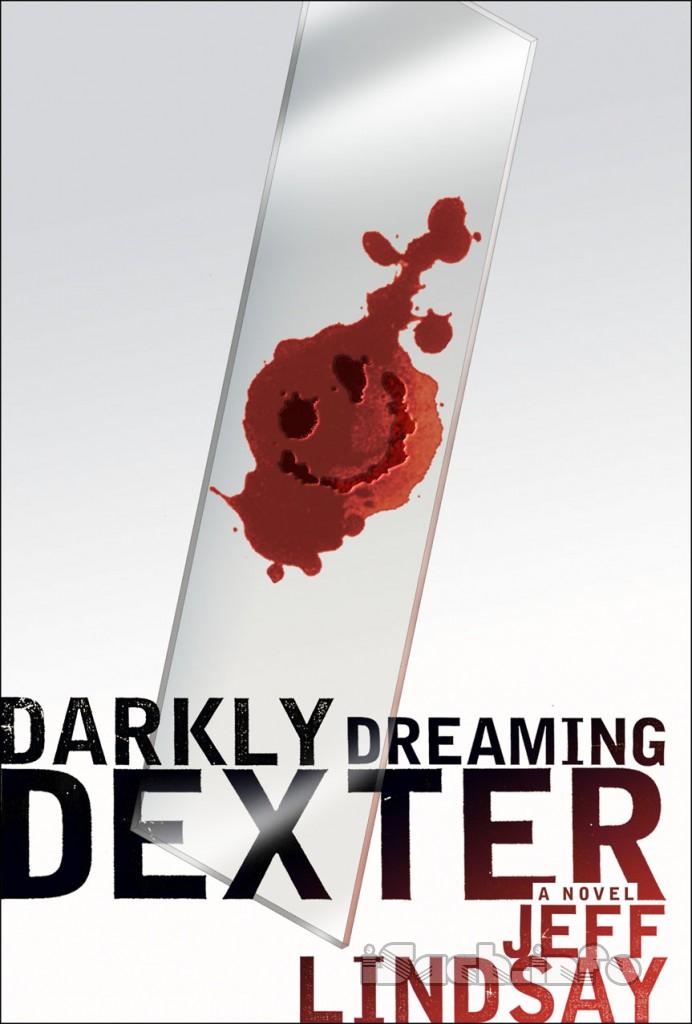Chapter 36
A
crowd of about a dozen people had gathered in the far corner of the room, beneath a flat-screen TV monitor that had been mounted to the wall. On the monitor was a close-up of Rita’s face. She had a gag pulled between her teeth, but her eyes were as wide open as they could possibly be and she was tossing her head from side to side in terror. And before I could do anything but lift a foot, Cody and Astor were already plunging ahead to save their mother.“Wait!” I called to them, but they did not, so I hurried after them, scanning frantically for Weiss. The Dark Passenger was completely quiet, silenced by my near-panicked concern for Cody and Astor, and in my rapidly skittering imagination Weiss was waiting to jump out at them from behind every easel, ready to lurch out from under every table, and I did not like rushing to meet him blind and sweating, but the children running to Rita left me no choice at all. I went faster, but they were already pushing through the small crowd to their mother’s side.
Rita was bound as well as gagged and strapped down to a table saw. The blade was whirling between her ankles, and the implication was clear that some very bad person was ready and willing to push her forward toward the shiny teeth of the saw. A sign taped to the front side of the table said, who can save our nell? and below that, in block letters, please do not disturb the performers. Around the edge of the space ran a model train, towing a series of flat cars with a sign propped up on them that said, the future of melodrama.
And finally I saw Coulter—but it was not a happy and reassuring sighting. He was propped up in a corner, head lolling to one side. Weiss had put an old-fashioned conductor’s hat on his head, and a heavy electric cable was attached to his arms by large, jumper-cable clips. A sign was propped in his lap: semi-conductor. He was not moving, but I could not tell if he was dead or merely unconscious, and considering the circumstances, finding out was not high on my list.
I pushed into the crowd, and as the model train went by again I heard Weiss’s patented prerecorded scream played in a taped loop that repeated every few seconds.
And I still could not see Weiss—but as I reached the crowd the image on the TV monitor changed—to my face. I spun frantically, searching for the camera, and found it, mounted on a pole on the far side of the exhibit’s space. And before I could spin back around again, I heard a whistling sound and a loop of very heavy fishing line whipped tight around my neck. As things started to go dark and whirly I had only a moment to appreciate the bitter irony that Weiss was using a fishing-line noose, one of my own techniques; the phrase my own petard trundled through my brain, and then I was on my knees and stumbling dreadfully forward in the direction of Weiss’s exhibit.
With a noose that tight around your neck, it’s really quite remarkable how quickly you lose interest in everything and slide into a dim region of distant sounds and dark lights. And even though I felt the pressure slacken slightly, I couldn’t raise enough interest to use the looseness to get free. I slumped on the floor, trying to remember how to breathe, and from far away I heard a woman’s voice saying, “That isn’t right—stop them!” And I was mildly grateful that someone was going to stop them until the voice went on, “Hey, you kids! It’s an art exhibit! Get away from there!” And it filtered through to me that somebody wanted to stop Cody and Astor from ruining the piece by saving their mother.
Air came in through my throat, which suddenly felt sore and much too big; Weiss had let go of the noose and picked up his camera. I took a ragged breath and managed to focus one eye on his back as he began to pan across the crowd. I took another breath; pain raced through my throat, but it felt pretty good, and enough light and thought came back with the breath that I managed to get up on one knee and look around.
Weiss was pointing the camera at a woman on the edge of the crowd—the woman who had scolded Cody and Astor for interfering. She was fiftyish, dressed very stylishly, and she was still yelling at them to back away, leave it alone, somebody call security, and happily for us all, the kids were not listening. They had freed Rita from the table, although her hands and feet were still bound, and the gag was still wedged into her mouth. I stood up—but before I could take more than a half step toward them, Weiss grabbed my leash again and pulled tight, and I went back into the midnight sun.
Dimly, from very far away, I heard scuffling, and the line around my throat went slack again as Weiss said, “Not this time you little shit!” There was a smacking sound and a small thump, and as a little light came back into my world, I saw Astor lying on the floor and Weiss struggling to take the screwdriver away from Cody. I raised a hand to my neck and scrabbled feebly at the line, and got it loose enough to take a huge breath, which was probably the right thing to do, but nonetheless caused a fit of the most painful coughing I have ever experienced, so very choked and dry that the lights went out once more.
When I could breath again, I opened my eyes to see that Cody was on the floor next to Astor, on the far side of the exhibit space beyond the table saw, and Weiss stood over them with the screwdriver in one hand and his video camera in the other. Astor’s leg twitched, but other than that they did not move. Weiss stepped toward them and raised the screwdriver, and I lurched drunkenly up to my feet to stop him, knowing I could never get there in time and feeling all the darkness drain out of me and puddle around my shoes at the thought of my helplessness.
At the last possible second, as Weiss stood gloating over the small still bodies of the children and Dexter leaned forward with horrible slowness, Rita stumbled forward into the picture—hands still tied, mouth still gagged, but feet fast enough to bring her charging into Weiss, slamming him with a deadly hip that sent him twirling sideways, away from the children, and straight at the table saw. And as he staggered upright she bumped him again, and this time his feet tangled together and he fell, the arm holding his camera flailing out protectively to keep him from falling onto the spinning saw blade. And he almost succeeded—almost.
Weiss’s hand slapped the table on the far side of the blade, but the force of his fall brought all his weight down, and with a grinding whine an explosive red mist shot into the air as Weiss’s forearm, hand still clutching the camera, came off altogether and thumped onto the model train-track at the edge of the crowd. The spectators gasped and Weiss stood slowly upright, staring at the stump of his arm as the blood pumped out. He looked at me and tried to say something, shook his head and stepped toward me, and looked at his rapidly squirting stump again, and then came another step toward me. And then, almost like he was walking down a flight of invisible stairs, he walked slowly down onto his knees and knelt there, swaying, only a few feet away from me.
And I, paralyzed by my fight with the noose and my fear for the children and above all the sight of that awful wet nasty viscous horrible blood pouring out and onto the floor—I simply stood there as Weiss looked up at me one last time. His lips moved again, but nothing came out and he shook his head slowly, carefully, as if he was afraid that it, too, might fall off and onto the floor. With exaggerated care he locked his eyes onto mine and very carefully, very distinctly, he said, “Take lots of pictures.” And he smiled a faint and very pale smile and pitched face forward into his own blood.
I took a step back as he fell and looked up; on the TV screen the model train chugged forward and slammed into the camera still clutched in the hand at the end of Weiss’s severed arm. The wheels churned for a moment, and then the train fell over.
“Brilliant,” said the stylish older lady in the front of the crowd. “Absolutely brilliant.”



 ePub
ePub A4
A4